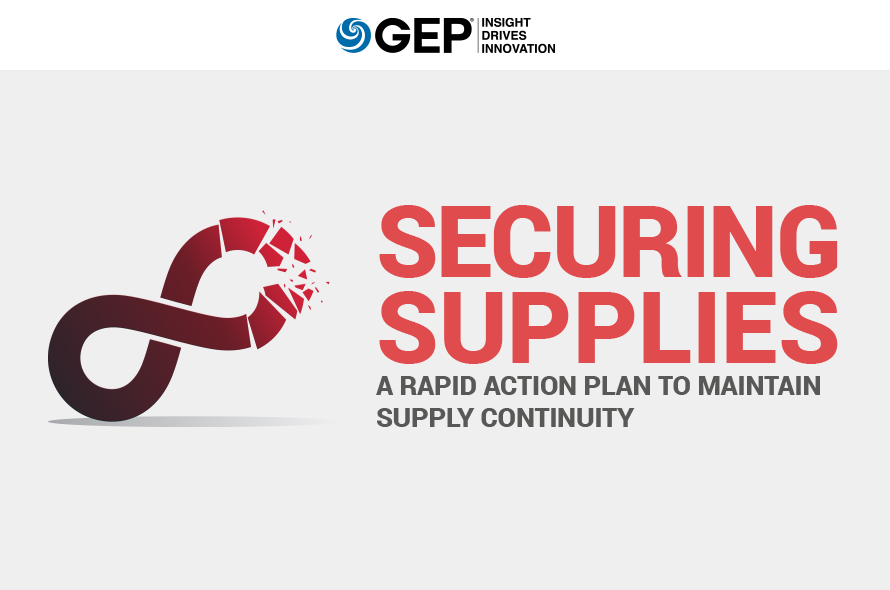Your inventory is dwindling. Some of your core suppliers are in vulnerable zones. You’re paying twice as much to procure the required materials. Your cash reserves are low.
As the COVID-19 pandemic continues to impact business activities across the world, procurement and supply chain leaders are looking for cost-effective ways to prevent further disruptions. The latest bulletin from GEP, Securing Supplies: A Rapid Action Plan to Maintain Supply Continuity, recommends a four-step plan that companies can execute immediately to manage their supply chains.
What’s Inside:
- Identifying and assessing your supply chain risks
- Sourcing, contracting and cost-optimization solutions
- The best way to implement the plan: a focused team and external experts
A must-read for supply chain leaders who need quick solutions to the supply chain risks their companies are facing.

